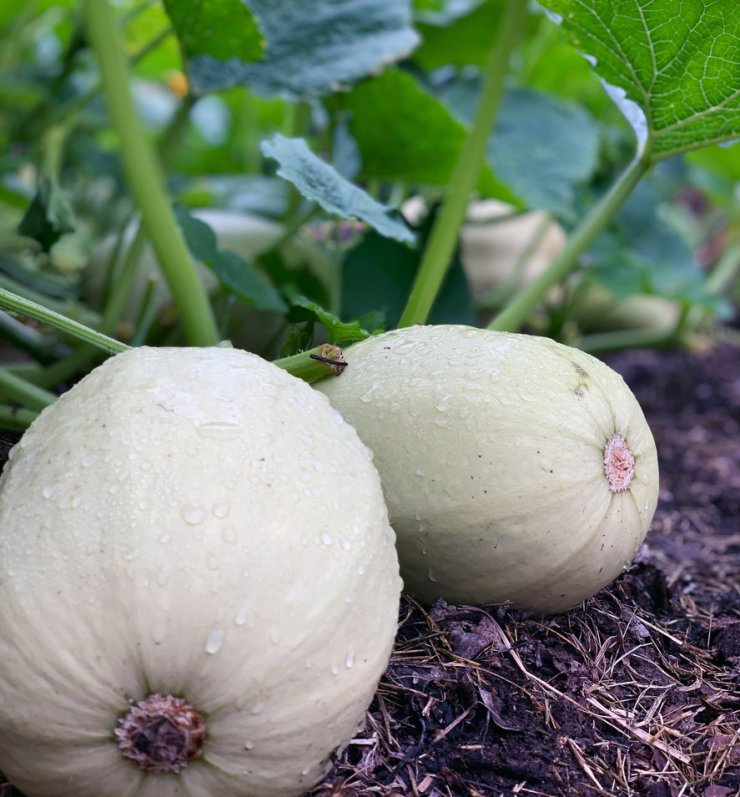
Spaghetti squash growing in the garden
Winter squash like a full day of sun—at least six hours. The soil should be well-drained and rich in organic matter. Sandy loam soil is best. Some aged compost mixed in before you plant will provide a nutritious welcome for your winter squash.
In general, winter squash prefer a soil pH of 6.0 to 6.8, although you may see some varieties that will tolerate soil in a higher or lower range. One of your annual gardening tasks should be to test your soil. You’ll save yourself a lot of time and aggravation, and your plants will thank you by growing instead of languishing. Your local extension center will have information on how to get your soil tested. For a little bit of preparation work, you can get a lot of information about the composition of your soil.
Determine the best variety of squash for you to grow by assessing your garden space and reviewing the time to harvest for different varieties. Make sure you have enough time between last frost in the spring, with the soil warmed to at least 70 degrees F, and your first frost in the fall.
Do you test your soil every year? Do you do the testing yourself or send it out to a lab? Please tell us your experience with preparing your garden for growing great winter squash!


 Previous
Previous

